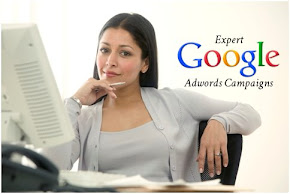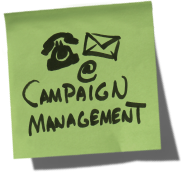Google AdWords Account: you would like to establish an AdWords account before
you start. Inside this, you discovered the account’s e-mail address and word,
asking info, payment technique, currency, and geographical zone. Once you
discovered the last 3, Google doesn't permit you to travel back and alter them
later.
Ad Rotation: It’s forever sensible follow to run 2 ads at the same
time inside every ad teams. This permits you to check totally different
headlines, body copy, then on to check that performs higher. There in case, in
campaign settings choose “ad rotation” rather “ad optimization”.
Ad Scheduling: Choosing the days and days during which you would like
your ads to be shown.
Average Position: The common positions of your ad in relevancy your
keywords overall and to every keyword one by one. If your AP is larger than
eleven, then you’re seldom if ever creating page one. If it’s around 9, you’re solely generally
creating page one.
Campaigns and Ad Groups: The nub of your Ad Words account. Campaigns square
measure typically general, whereas Ad teams (which fall into campaigns) square
measure specific. as an example, your campaign can be regarding workplace
provides. inside that campaign, you may run totally different ad teams for,
say, paper, filing cupboards, easels, and so on.
Campaign Settings: You want to prefer variety of choices before you'll
activate your account. These embrace campaign name, locations, language,
networks, devices, bidding choices, ad programming, and ad rotation.
Conversions: These square measure pre-determined actions taken by
your guests. Conversions will embrace variety of actions: page views; sign-ups;
catalogue requests; voucher downloads; lead generation; enquiries; white
papers; e-commerce sales.
Conversion Rate: The share of conversions you’ve received from your
clicks. To calculate it, you divide the
amount of clicks by the amount of conversions.
Conversion Rate (many per click): This measures the percentage of resulting conversions
from a similar information science address that comes inside a 30-day amount
following an initial click on one among your ads. As an example, on the primary
click (see below), a traveler might get a product from your web site. With
several per click, it always means they need came inside thirty days and
created an additional purchase(s).
Conversion Rate (one per click): This measures the primary conversion that comes inside
a 30-day amount following a click on one among your ads.
Conversion Tracking: This is often code you derive from inside Ad Words so
insert into your web site. This code is employed to trace your conversions.
Cost per acquisition (CPA): The number every conversion has price. Google
calculates this by dividing the pay quantity by the amount of conversions over
a amount hand-picked by you.
Cost per click (CPC): This has 2
functions. First, it refers to the number you would like to bid for every
click, on the average across your whole keyword list and, if you would like,
you'll create separate bids for various keywords. Second, it shows after the number you have
got truly obtained every click, overall and by individual keyword.
Cost per one thousand impressions
(CPM): Here, you pay not for clicks, however every time
your ad seems on the page. This selection is offered solely on the Google
Content Network.
Click through rate (CTR): This tells you ways well your ads and keywords
square measure playacting. CTR is calculated by dividing the amount of
impressions by the amount of clicks, making a proportion. In AdWords, for
Quality Score functions, the CTR that matters is that achieved on Google
itself; you’re CTR on the search partners and also the content network is
unheeded. Google regards a CTR below one hundred and twenty fifth as poor, 1-2%
as OK, and over a pair of nearly as good.
Daily Budget: The most quantity you're ready to pay in any day
(Google averages this over a period). You set this at campaign level.
Google Analytics: A separate trailing tool that your internet developer
ought to install for you. It provides valuable statistics on your web site
operation as a full. Linking it to AdWords is extraordinarily helpful, because
it can offer with extra knowledge on your PPC activities.
Impressions: These occur every time your ad seems on a viewed page
following a research exploitation one among your keywords. If your ad seems,
say, on page a pair of and also the traveler doesn't open page a pair of, the
impression isn't counted on your score – as a result of your ad wasn't viewed.
Landing Page: The page that your guests square measure taken to once
they click on your advert.
Optimization: Creating your campaign as effective as doable by up
aspects of it. You’ll optimize the likes of keywords, bids, ads, and Landing
Pages.
Networks: Google provides you a alternative of networks wherever
they're going to show your ads. The 3 networks square measure Google search
solely, Google search partners, and also the content network. The default has
all networks switched on. Since every of those will perform otherwise, you must
select the network(s) that you simply feel is true for you.
Position Preference: Telling Google that you simply solely need your ads to
seem once they are going to be during a specific position, e.g., #3 or inside a
variety of positions, e.g. 1-3.
PPC:
Pay per click advertising. You pay given that somebody clicks on your advert
once it seems on the search pages. Google brands this as “Google AdWords”.
Quality Score: Exclusive to Google AdWords. Google scores your
campaign from 0-10. The key to total success (10/10) is relevance. Google
considers variety of problems. However, the main issue is that the relationship
between your keywords, adverts, and landing page. because the campaign
progresses, they'll revise your score in keeping with however sensible your CTR
is for your keywords and ads, and the way high your bids square measure, as a
result of this may have an effect on your CTR. obtaining a high QS is crucial,
as a result of it means Google considers your campaign extremely relevant in
order that they can offer you higher page positions and charge you lower CPC’s.
Reports: Google provides you with a variety of reports that you
simply will run at any time. Visit the "Reports" tab on your account.
ROI: Return on investment. This can also be called Return on Ad Spend
(ROAS). You calculate this using the formula:
Revenue from Sales minus
Advertising Costs x100
Divided by Advertising Costs
Let’s say that your sales
revenue is $100 and your AdWords advertising spend to achieve that is $40. The
formula would look like (100 - 40 / 40) x 100. Thus, the ROI would be 150% -
you are making 150% of your ad spend. But let’s say that your sales revenue is
$40 and your ad spend is also $40, your ROI would be 0% (you’d be breaking
even). On the other hand, if your revenue is $30 and your advertising spend is
$40, your ROI is minus 25% (you’re making a loss). So, your aim is to get an Ad
Words ROI of 0% or greater.
SERPS: Search engine results pages.
Sponsored
Links: Google AdWords pay per click
adverts.
Website
Optimizer: A special tool - not just for
Google AdWords - that allows you to split test and experiment with a number of
variations on your landing pages. This is complicated and you may need
professional assistance.
Similar posts you may like
































